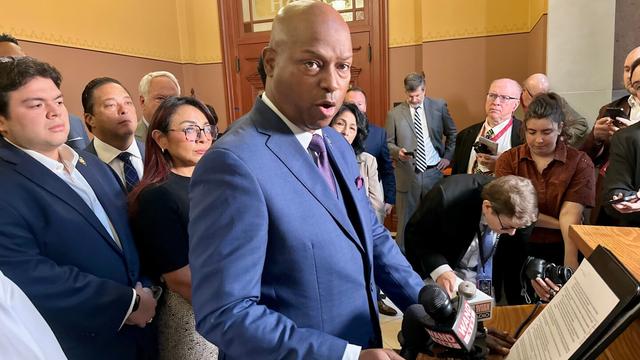2025-10-15 22:33:08
Chicago is in Cook County and now courts are safer.
"Cook County’s top judge signed an order barring ICE from arresting people at court."
"...bars the civil arrest of any “party, witness, or potential witness” while going to court proceedings. It includes arrests inside courthouses and in parking lots, surrounding sidewalks and entryways."
2025-12-13 16:18:20
“In a recent meeting where BBC studio executives again voiced problems, I realised my choices. Obedience and being quieter to remain making Monkey Cage, or resign and have the freedom to speak out against what I believe are injustices. I chose the latter. It broke my heart.”
– @…
Told you folks he’s a good egg :)
2025-10-14 13:08:58
KnowRL: Teaching Language Models to Know What They Know
Sahil Kale, Devendra Singh Dhami
https://arxiv.org/abs/2510.11407 https://arxiv.org/pdf/2510.11407
2025-12-10 08:40:10
Revised comment on the paper titled "The Origin of Quantum Mechanical Statistics: Insights from Research on Human Language
Miko{\l}aj Sienicki, Krzysztof Sienicki
https://arxiv.org/abs/2512.07881 https://arxiv.org/pdf/2512.07881 https://arxiv.org/html/2512.07881
arXiv:2512.07881v1 Announce Type: new
Abstract: This short note comments on \citet{Aerts2024Origin}, which proposes that ranked word frequencies in texts should be read through the lens of Bose--Einstein (BE) statistics and even used to illuminate the origin of quantum statistics in physics. The core message here is modest: the paper offers an interesting analogy and an eye-catching fit, but several key steps mix physical claims with definitions and curve-fitting choices. We highlight three such points: (i) a normalization issue that is presented as "bosonic enhancement", (ii) an identification of rank with energy that makes the BE fit only weakly diagnostic of an underlying mechanism, and (iii) a baseline comparison that is too weak to support an ontological conclusion. We also briefly flag a few additional concerns (interpretation drift, parameter semantics, and reproducibility).
toXiv_bot_toot
2025-10-07 11:09:02
Spectral Properties of Anomalous Microwave Emission in 144 Galactic Clouds
Roke Cepeda-Arroita, J. A. Rubi\~no-Mart\'in, R. T. G\'enova-Santos, C. Dickinson, S. E. Harper, F. Poidevin, M. W. Peel, R. Rebolo, D. Adak, A. Almeida, K. Aryan, R. B. Barreiro, F. J. Casas, J. M. Casas, J. Chluba, M. Fern\'andez-Torreiro, D. Herranz, G. A. Hoerning, Michael E. Jones, J. Leech, E. Mart\'inez-Gonz\'alez, T. J. Pearson, Angela C. Taylor, P. Vielva, R. A. Watson, Z. Zhang
2025-10-02 08:48:41
ELIGANT-TN -- ELI Gamma Above Neutron Threshold: The Thermal Neutron setup
P. -A. S\"oderstr\"om, D. L. Balabanski, M. Cuciuc, D. M. Filipescu, I. Gheorghe, A. Ku\c{s}o\u{g}lu, C. Matei, D. Testov, S. Aogaki, H. T. Aslani, L. Capponi, D. Choudhury, G. Ciocan, T. Glodariu, M. Krzysiek, V. Lelasseux, R. Roy, R. F. Andrei, M. Brezeanu, R. Corbu, A. Dhal, D. Iancu, D. Kahl, S. Ioannidis, K. KeunHwan, G. Lorusso, B. Mauyey, T. Petruse, G. V. Turturic\u{a}
2025-09-22 10:12:21
Single-Round Deterministic Quantum Anonymous Veto Using Bell States
Ravi Sangwan, Harishankar Mishra, Henry Sukumar, Gudapati Naresh Raghava
https://arxiv.org/abs/2509.15951 htt…
2025-09-22 08:26:21
A Hypothesis-First Framework for Mechanistic Model Evaluation and Selection in Neuroimaging
Dominic Boutet, Sylvain Baillet
https://arxiv.org/abs/2509.16070 https://





